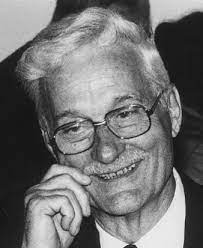Hawley, H. Amos

Bio: (1910-2009) American sociologist. Amos Hawley received his doctorate and taught sociology at the University of Michigan, and then taught at the University of North Carolina. Hawley is known for his special approach to human ecology, which relies on the theories of Park and Burgess. His approach is macro-sociological. He believes that the adaptation of people to their social and physical environment always takes place through social organization. Relationships between individuals are structures that adapt to changes in the social, technical, and physical environment. These structures are independent of individual people and are much more durable than them.
Organizations can grow in size, and they can evolve to adapt to changes in the environment as new technology develops. His theory is based on several theoretical postulates: adaptation takes place by creating interdependence between individuals, in order to increase the chances of survival of the entire population; the system will continue to grow until it reaches the upper maximum that is sustainable with the use of some communication and transport technology. When new technologies are adopted, the processes of adaptation and growth of the system continue until the system returns to equilibrium.
The environment, although it can be changed, always creates restrictions on the possible development of society. The ability of social groups to organize and spread is the basic process of human ecology. As people fight for limited resources, there is a struggle for survival. To avoid the struggle for survival, symbiotic relations are developed in society, and to maintain this symbiotic relationship, moral norms, and social stratification are established. Hawley believes that the changes that are taking place - adaptation, growth, struggle, cooperation - are probabilistic and not deterministically determined by the environment. It focuses on long-term and comprehensive change. According to his theory, individuals do not play a big role in these changes.
Fields of research
Authority City Community Ecology Evolution Inequality, Social Morality TechnologyTheoretical approaches
Human EcologyMain works
Human Ecology: A Theory of Community Structure (1950);
Urban Society: An Ecological Approach (1971);
Nonmetropolitan America in Transition (1982);
Human Ecology: A Theoretical Essay (1986);
Academic Affairs (1998).

